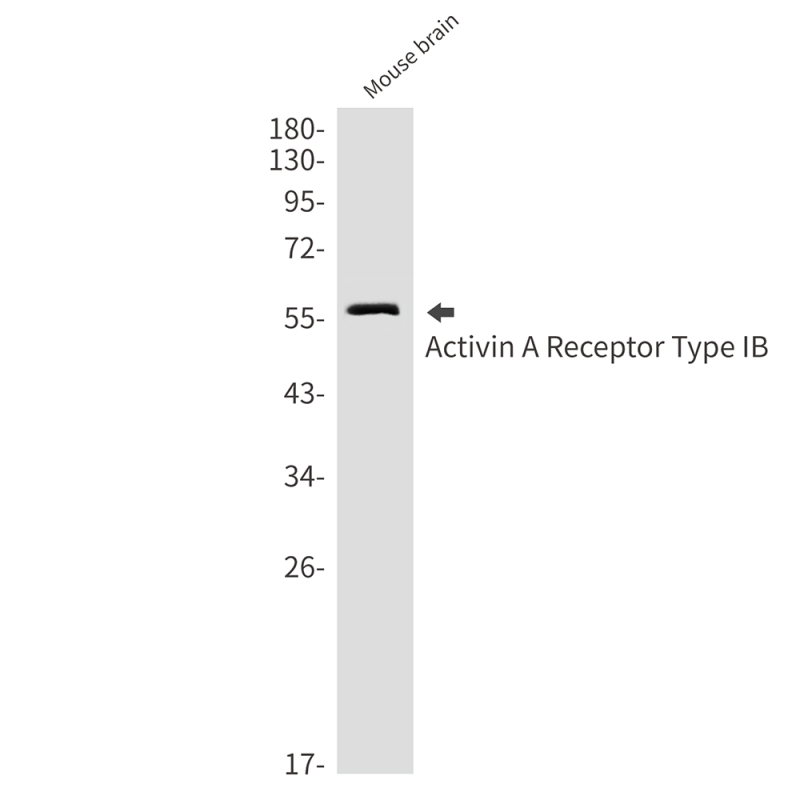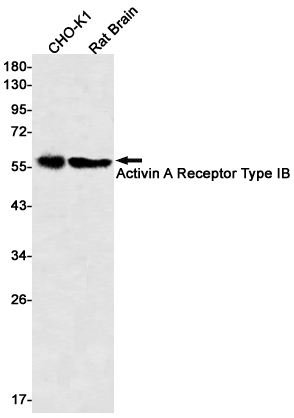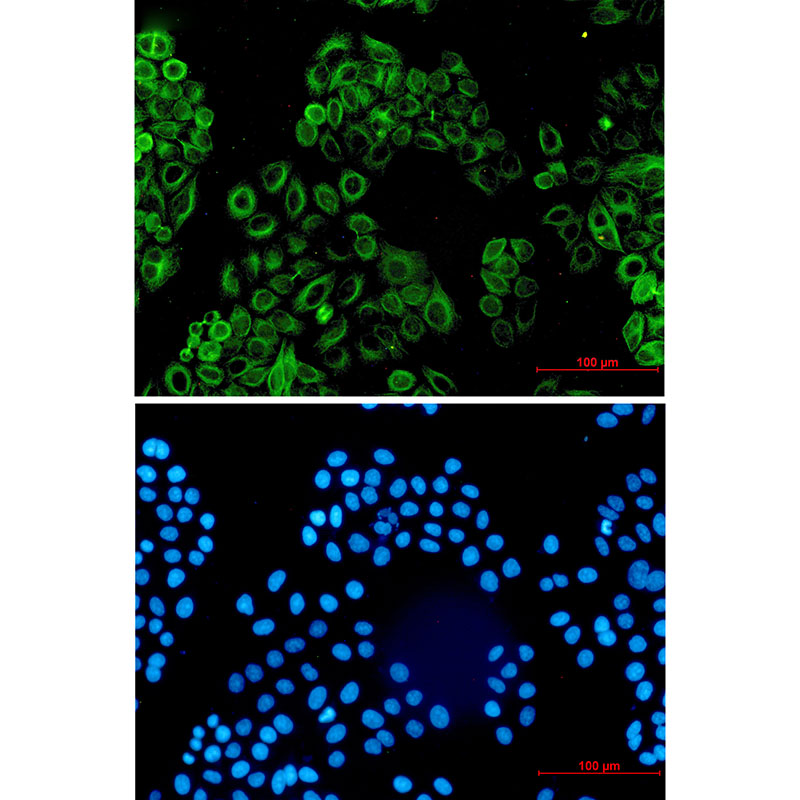


| WB | 咨询技术 | Mouse,Rat,Hamster |
| IF | 咨询技术 | Mouse,Rat,Hamster |
| IHC | 咨询技术 | Mouse,Rat,Hamster |
| ICC | 1/50-1/200 | Mouse,Rat,Hamster |
| FCM | 咨询技术 | Mouse,Rat,Hamster |
| Elisa | 咨询技术 | Mouse,Rat,Hamster |
| Aliases | ACVR1B; ACVRLK4; ALK4; Activin receptor type-1B; Activin receptor type IB; ACTR-IB; Activin receptor-like kinase 4; ALK-4; Serine/threonine-protein kinase receptor R2; SKR2 |
| Entrez GeneID | 91 |
| WB Predicted band size | Calculated MW: 57 kDa; Observed MW: 57 kDa |
| Host/Isotype | Rabbit IgG |
| Antibody Type | Primary antibody |
| Storage | Store at 4°C short term. Aliquot and store at -20°C long term. Avoid freeze/thaw cycles. |
| Species Reactivity | Mouse,Rat,Hamster |
| Immunogen | A synthetic peptide of human Activin A Receptor Type IB |
| Formulation | Purified antibody in TBS with 0.05% sodium azide,0.05%BSA and 50% glycerol. |
+ +
以下是关于Activin A受体Type IB(ACVR1B/ALK4)抗体的3篇文献摘要示例(注:文献为示例性内容,实际引用需核实):
1. **文献名称**:*"Development of a Monoclonal Antibody Targeting ACVR1B for Inhibiting Tumor Growth in Colorectal Cancer"*
**作者**:Smith J, et al.
**摘要**:研究开发了一种特异性靶向ACVR1B的单克隆抗体,证实其通过阻断Activin信号通路抑制结直肠癌细胞增殖并减少小鼠模型中肿瘤生长。
2. **文献名称**:*"ACVR1B Neutralizing Antibody Attenuates Fibrosis in a Mouse Model of Pulmonary Fibrosis"*
**作者**:Li Y, et al.
**摘要**:使用中和抗体阻断ACVR1B活性,显著减轻肺纤维化小鼠模型的胶原沉积和炎症反应,提示其作为潜在抗纤维化治疗策略。
3. **文献名称**:*"Role of ACVR1B in Pancreatic Cancer Stemness and Antibody-Based Therapeutic Targeting"*
**作者**:Wang H, et al.
**摘要**:通过抗ACVR1B抗体抑制受体功能,可降低胰腺癌干细胞自我更新能力,并增强化疗敏感性,为联合治疗提供依据。
如需具体文献,建议通过PubMed或Google Scholar检索关键词(如“ACVR1B antibody”、“ALK4 inhibitor”)获取最新研究。
The Activin A Receptor Type IB (ACVR1B), also known as ALK4. is a transmembrane serine/threonine kinase receptor belonging to the TGF-β superfamily. It plays a critical role in mediating cellular responses to ligands like Activin, Nodal, and certain growth differentiation factors (GDFs). Upon ligand binding, ACVR1B forms a complex with type II receptors (e.g., ActRIIA/ActRIIB), activating downstream SMAD signaling pathways (SMAD2/3) to regulate gene expression. This receptor is involved in diverse processes, including embryonic development, cell differentiation, immune regulation, and tissue homeostasis.
Antibodies targeting ACVR1B are essential tools for studying its expression, localization, and function in physiological and pathological contexts. They are widely used in techniques such as Western blotting, immunohistochemistry, and immunofluorescence to detect receptor levels in tissues or cultured cells. Additionally, neutralizing antibodies can block ACVR1B activity to investigate its role in signaling cascades or disease mechanisms. Dysregulation of ACVR1B signaling has been linked to cancers, fibrosis, and developmental disorders, making it a potential therapeutic target. For instance, aberrant ACVR1B activation may promote tumor progression or fibrotic tissue remodeling, and inhibitory antibodies are being explored to counteract these effects. Research also highlights its relevance in reproductive biology and metabolic regulation, underscoring the versatility of ACVR1B antibodies in both basic research and clinical applications.
×